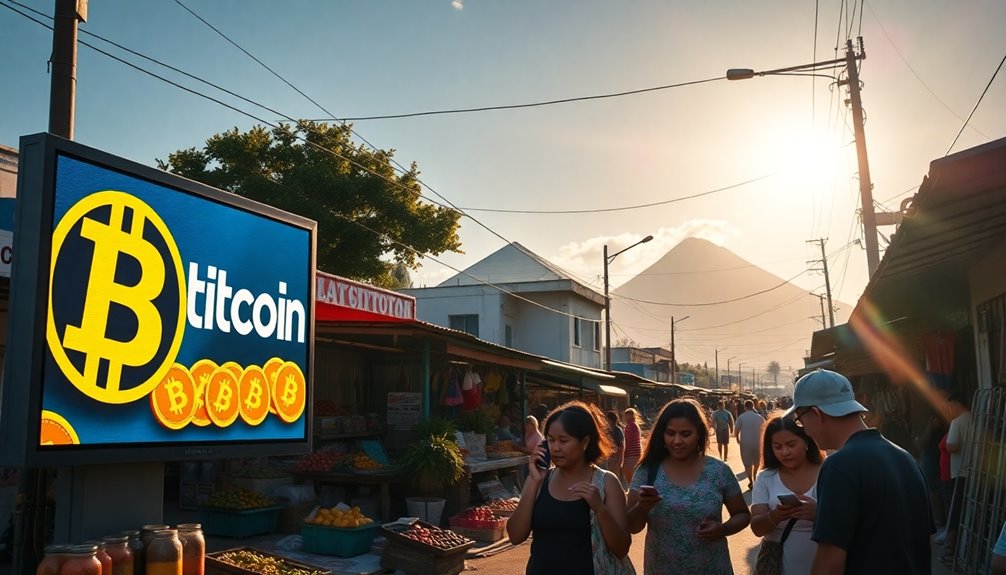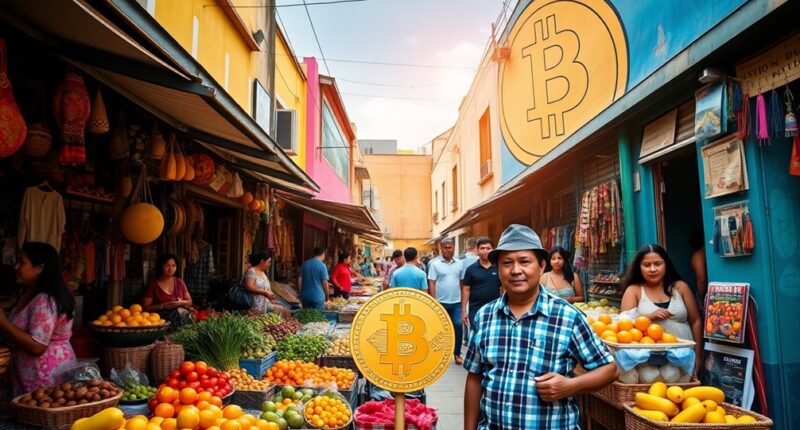You've probably heard about El Salvador's bold move to adopt Bitcoin as legal tender, but the reality isn't as straightforward as it seems. While the government pushes for adoption, many locals remain skeptical, facing hurdles like volatility and tech challenges. So, what does this mean for the future of cryptocurrency in the country? The answers might surprise you as we explore the implications and ongoing struggles of this unprecedented economic experiment.

Since El Salvador made Bitcoin legal tender on September 7, 2021, it has sparked both excitement and skepticism. You might find it fascinating that El Salvador became the first country in the world to adopt Bitcoin as legal tender, setting a precedent that could influence global financial practices. The government has been proactive in promoting Bitcoin, notably through initiatives like the Chivo wallet, aiming to facilitate easier access and usage for its citizens.
However, the reality on the ground tells a different story. While the government champions Bitcoin, adoption rates remain low. You'd be surprised to learn that only about 7.5% of people in El Salvador actively use Bitcoin for transactions. The enthusiasm that greeted this groundbreaking change has waned, with usage dropping from 24.4% in 2022 to just 12% in 2023. Most users make only a handful of purchases—often at grocery stores—indicating a hesitance rooted in a lack of understanding. The majority of respondents do not use Bitcoin for transactions, highlighting a significant gap between government initiatives and public acceptance.
Despite the government's push, only 7.5% of Salvadorans actively use Bitcoin, reflecting a growing skepticism and limited understanding.
This skepticism is compounded by mixed economic sentiments, as many people don't attribute any improvements in their economic conditions to Bitcoin.
On the bright side, tourism has seen a boost, increasing by 22% in 2024, much of which can be traced back to Bitcoin's novelty. This uptick could attract further investment into the country, presenting opportunities for growth.
However, you should also consider the risks involved. The volatility of Bitcoin poses significant threats to financial stability, and the International Monetary Fund (IMF) has raised concerns about these risks, potentially complicating future financial support.
Technologically, Bitcoin's complexity presents another barrier. The Lightning Network aims to facilitate quicker transactions, but without improved technological infrastructure and digital literacy, widespread adoption remains a challenge. Many citizens might shy away from Bitcoin simply because they don't fully grasp how it works.
As you reflect on the social and ethical implications of this experiment, it's crucial to note the ongoing debates about Bitcoin's role in addressing poverty and serving underbanked populations. The public perception is mixed; while some see potential benefits, many remain skeptical about the practical advantages of using a speculative currency in a national economy.
In this intricate landscape, El Salvador's Bitcoin journey stands as a legal rollercoaster, filled with ups and downs. Whether it'll ultimately lead to broader acceptance of cryptocurrency or serve as a cautionary tale remains to be seen.









